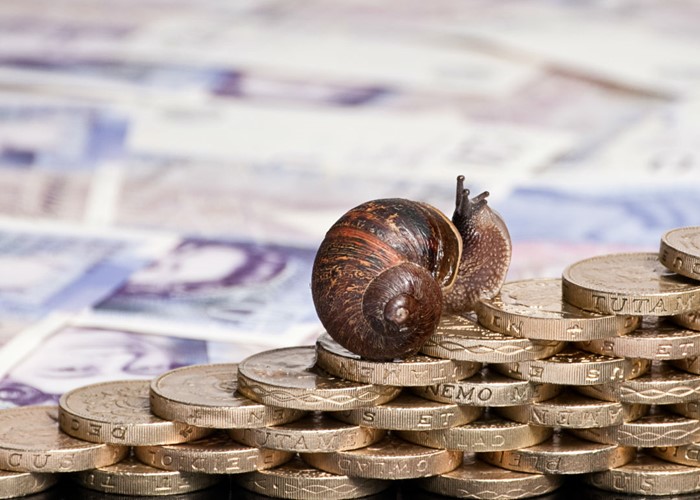Regular savers: earn 8% on your savings with no risk

With a regular savings account you can get a rate that beats even the highest-paying ISAs.
Last September, I needed to find a safe home for some spare cash that was building up each month. So I opened a Cash ISA to earn tax-free interest on my nest egg.
As soon as the new tax year began last Friday, 6 April, I started shopping around for a new Cash ISA. Sadly the rates on offer were nothing to write home about. Even the very best table-topping cash ISAs offering easy access currently pay just 3% to 3.5% a year, free of tax.
A tax-free rate of 3.5% is worth 4.375% to a basic-rate (20%) taxpayer and 5.833% to a higher-rate (40%) taxpayer. Being in the latter category, if I could find a taxable savings account paying at least 6% a year before tax, then it would beat the best easy-access cash ISAs.
The good news is that I found an ace account that beats all cash ISAs, hands down!
High return, but no risk
As I have earmarked this money for a particular purpose, I can't afford to take risks with this capital. Otherwise, I would probably use it to buy shares in big, blue-chip companies that pay high dividend incomes to their shareholders.
On Good Friday -- the very first day of the 2012/13 tax year -- I opened a new savings account. The amazing thing about this particular account is that it pays a fixed rate of 8% a year before tax. After tax, this comes to 6.4% for 20% taxpayers and 4.8% for 40% taxpayers.
8% for regular savers
Now for the bad news: this is no ordinary account, open to all. In fact, only current account customers of first direct can apply for this super savings account.
In addition, this account isn't suitable for lump sums, as it is a regular-savings account into which money is paid each month for a whole year. Then again, savers with a first direct 1st Account can open a first direct Regular Saver account and deposit between £25 and £300 a month by standing order for 12 months.
Over 12 months, the maximum balance would rise to £3,600 and the minimum final balance would be £300. According to first direct, by saving the maximum £300 a month for a year, I would earn around £156 before tax. A fifth of this (£31.20) would be deducted as tax at source, leaving me with £124.80. After paying a further £31.20 in tax, I'd be left with £93.60.
Of course, earning £93.60 on savings of £3,600 appears to work out at an interest rate of a mere 2.6% a year. However, this calculation works only for lump sums, whereas I am saving monthly. In reality, I earn around 0.391% a month after tax on my rising balance, which compounds up to 4.8% a year.
For regular saving (rather than lump sums), nothing beats this savings account, except for a similar HSBC Regular Saver account for HSBC Premier, HSBC Advance, HSBC Advance (Graduate) or HSBC Passport customers. This account accepts monthly deposits of between £25 and £250 for a year and also pays a rate of 8%.
Ace accounts open to all
Of course, my new account lasts only for a year, so I will need to withdraw my final pot and find a new home for it next April. Already, I suspect that I may open an identical account in a year's time, in order to earn another 8% before tax.
Then again, what if you're neither a customer of first direct nor HSBC and, therefore, can't have one of their table-topping accounts for regular savers? Here are the best regular savings accounts open to all customers:
|
Provider |
Account |
Interest rate (% AER) |
Min/Max per month |
Notes |
|
Norwich & Peterborough BS |
E-Family Regular Saver* Family Regular Saver* |
5.00% |
£1/£250 |
Includes 1.65% bonus for 12 months |
|
Cheshire BS |
Platinum Monthly Saver Issue 3 |
5.00% |
£100/£500 |
|
|
West Brom BS |
Fixed Rate Regular Saver (Adult) |
4.10% |
£10/£250 |
* Available to adult savers with dependent children up to 16 (18 if in full-time education).
As you can see, the N&P, Cheshire and West Brom building societies pay between 4.1% and 5% a year before tax on regular savings starting at £1 or £10 a month, up to a maximum of £250 a month. Other building societies offer similar accounts, most of which pay between 2% and 4% a year, so always shop around for savings accounts before signing up.
Finally, most regular-savings accounts don't allow you to make any withdrawals during their 12-month life, or penalise you heavily for withdrawing your cash or missing payments. Therefore, please drip-feed only money you can spare into these high-paying accounts.
More on savings:
Encash: a new rival for Zopa, RateSetter and Funding Circle
The best Cash ISAs for the new tax year 2012/13
What to do if you've missed the ISA deadline
Comments
Be the first to comment
Do you want to comment on this article? You need to be signed in for this feature